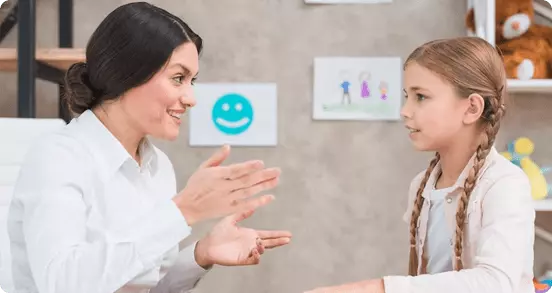 Author:
Author:
What is Child Counseling? How It Can Help Your Child.
Child counseling benefits children in numerous ways, fostering their mental and emotional health. In this article, we will explore the advantages of child counseling and how it can make a positive impact on your child’s life.
Understanding Child Counseling
Child counseling, also known as child therapy or pediatric counseling, is a specialized form of therapy designed to address the unique emotional and psychological needs of children. It involves a child counselor or psychologist working closely with young individuals to help them navigate various challenges they may face.
The Benefits of Child Counseling
Improved Mental Health- Child counseling provides children a safe and supportive environment to express their thoughts and emotions. It helps them manage stress, anxiety, and depression, improving their mental well-being.
- Enhanced Communication Skills- Through counseling, children develop better communication skills. They learn to express themselves more effectively, which can improve their relationships with peers, teachers, and family members.
- Behavioral Improvement- Child counseling benefits children dealing with behavioral issues such as aggression, defiance, or withdrawal. Counselors use techniques like play therapy to help children understand and manage their behaviors.
- Emotional Regulation- Counseling equips children with strategies to regulate their emotions. This is especially valuable for those struggling with anger, fear, or sadness, as it empowers them to handle these emotions constructively.
- Support for Anxiety and Depression- Child counseling can particularly benefit children experiencing anxiety or depression. It offers those tools and coping strategies to manage their symptoms, build resilience, and foster a positive outlook.
- Enhanced Self-Esteem- Many children struggle with self-esteem issues. Counseling helps boost self-confidence by encouraging self-awareness and self-acceptance. This, in turn, can lead to improved academic performance and social interactions.
- Conflict Resolution Skills- Child counseling often involves family sessions to improve communication and resolve conflicts within the family unit. Children learn valuable conflict resolution skills that can positively affect their relationships at home and school.
Child Counseling Approaches
Child counselors use a variety of approaches tailored to the child’s age and specific needs.
- Play Therapy for Children- This approach allows children to express themselves through play, making it easier for them to communicate their emotions.
- Art Therapy- Through art, children can express their feelings and experiences, providing valuable insights for counselors.
- Family Counseling- Child counseling often involves family sessions to improve communication and resolve conflicts within the family unit.
- Cognitive-Behavioral Therapy (CBT) – CBT is adapted for children to help them identify and change negative thought patterns and behaviors.
The Child Counseling Process
Child counseling typically involves several stages.
A- Assessment- The counselor assesses the child’s emotional and psychological state, identifying areas of concern.
B- Goal Setting- Together with the child and their family, the counselor sets goals for therapy.
C- Therapeutic Techniques- The counselor uses appropriate techniques to address the child’s needs and challenges.
D- Progress Monitoring- Progress is regularly reviewed, and adjustments are made as needed.
E- Closure- The counseling process concludes when the child has achieved their goals.
Conclusion- Child counseling benefits children by providing them with essential tools to navigate the challenges of growing up. Whether your child is dealing with anxiety or behavioral issues or needs a safe space to express themselves, child counseling can significantly affect their well-being. If you are considering child counseling for your child, consult with a qualified child counselor or therapist to explore the best options for their unique needs.
